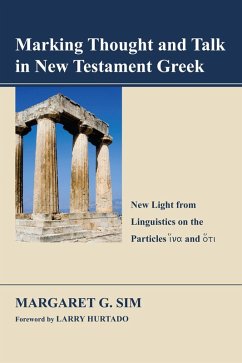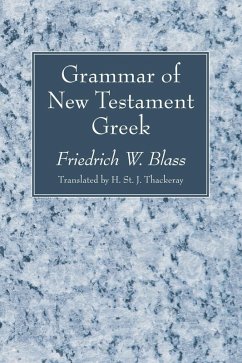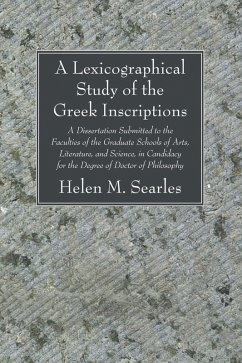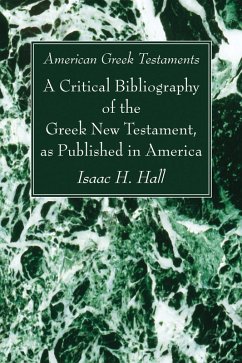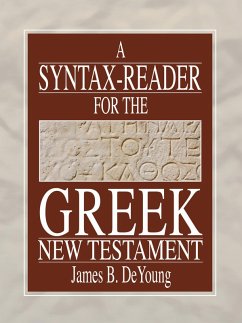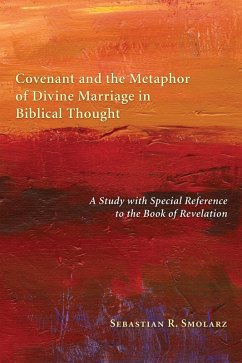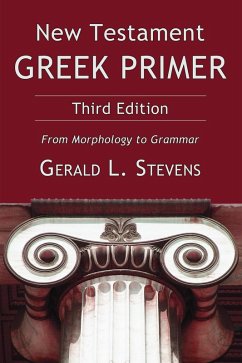This book uses insights from a modern theory of communication, Relevance Theory, to examine the function of the particle i(/na [SET IN SpIonic] in New Testament Greek. It claims that the particle does not have a lexical meaning of "in order that," contrary to accepted wisdom, but that it alerts the reader to expect an interpretation of the thought or attitude of the implied speaker or author. Evidence is adduced from pagan Greek and in particular the writings of Polybius, Dionysius of Halicarnassus, and Epictetus, as well as the New Testament. The implications of this claim give an opportunity for a fresh interpretation of many problematic texts.
Dieser Download kann aus rechtlichen Gründen nur mit Rechnungsadresse in A, D ausgeliefert werden.

